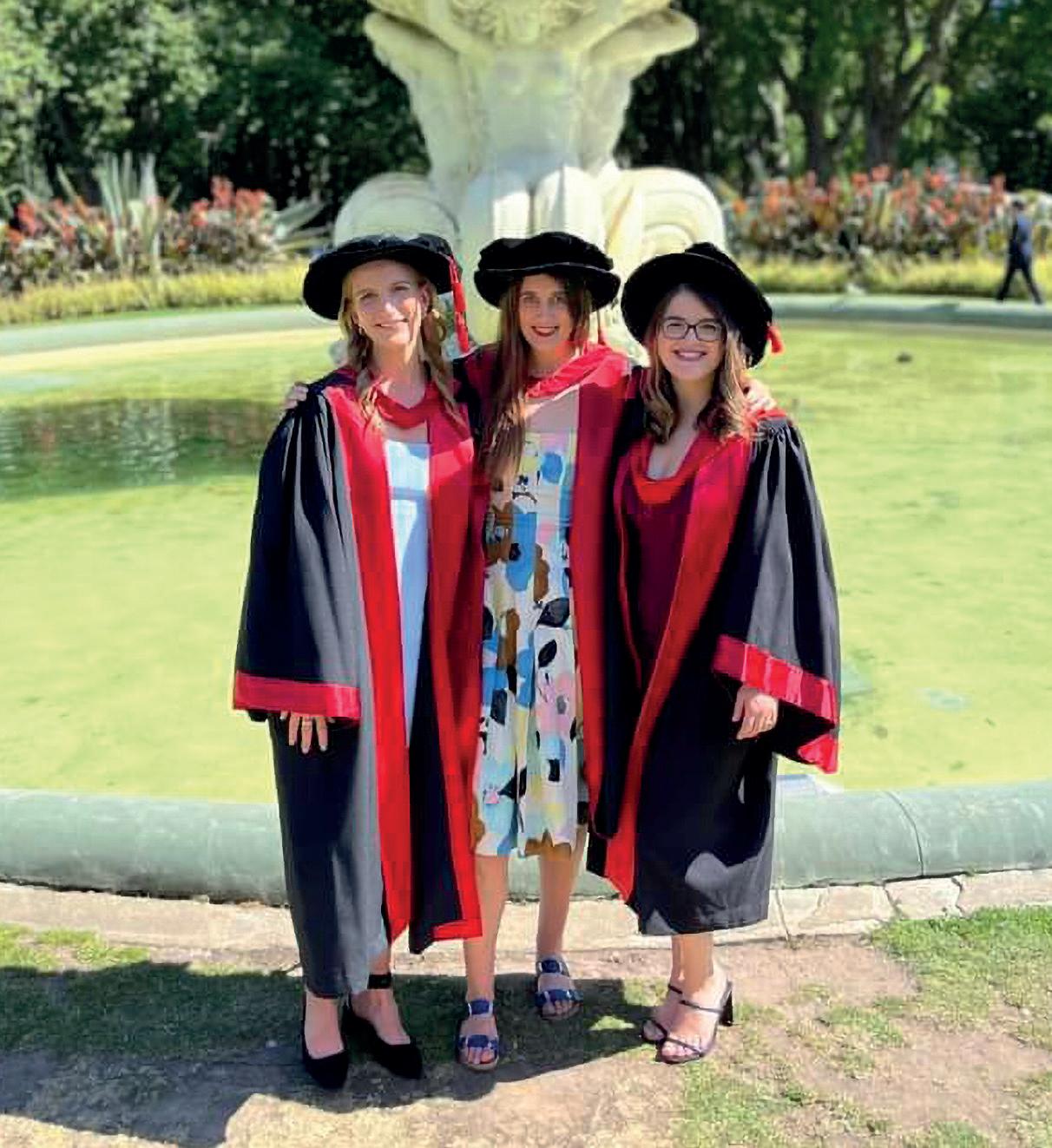
1 minute read
Publications of note
Number of publications in 2022
832
Source: Combination of Dimensions, Elements and OpenAlex
Average annual number of citations over the past two years (2021–2022), for all Florey publications (1972 to 2022)
38,430
Source: Dimensions
Understanding the drivers of impulsive behaviour
Professor Lucy Palmer and team published Neural basis of anticipation and premature impulsive action in the frontal cortex in Nature Neuroscience. Their paper investigated premature impulsive actions such as ‘false starts’. They found the anterior lateral motor cortex plays a major role in getting the anticipated behaviour wrong. This could inform how impulsive behaviour occurs in disorders such as schizophrenia, obsessive compulsive disorder and addiction.


Pioneering stem cell research to advance the treatment of Parkinson’s disease
Professor Lachlan Thompson and Professor Clare Parish, Dr Niamh Moriarty and team published their proof-of-principle study A combined cell and gene therapy approach for homotopic reconstruction of midbrain dopamine pathways using human pluripotent stem cells in Cell Stem Cell. Their research successfully used transplanted neurons derived from stem cells to construct long-distance brain connections previously damaged in an animal model of Parkinson’s disease.
New insights into an important therapeutic target for a range of cardiovascular and neurodegenerative diseases
Associate Professor Daniel Scott and his team solved the first crystal structure of an important receptor implicated in heart failure and Alzheimer’s disease. Their paper, Crystal structure of the α 1B-adrenergic receptor reveals molecular determinants of selective ligand recognition, published in Nature Communications, details how the α1B-adrenoceptor regulates key activities within the cardiovascular and nervous systems.

Identifying epigenetic contributors to epilepsy
Professor Chris Reid and an international team of researchers published Epigenetic genes and epilepsy — emerging mechanisms and clinical applications in Nature Neurology, looking at an emerging field of research in epilepsy known as ‘epigenetics’. Their review highlighted that epigenetic variations is increasingly found to be causally involved in types of epilepsy and has implications for disease mechanisms, treatments and diagnostics.









